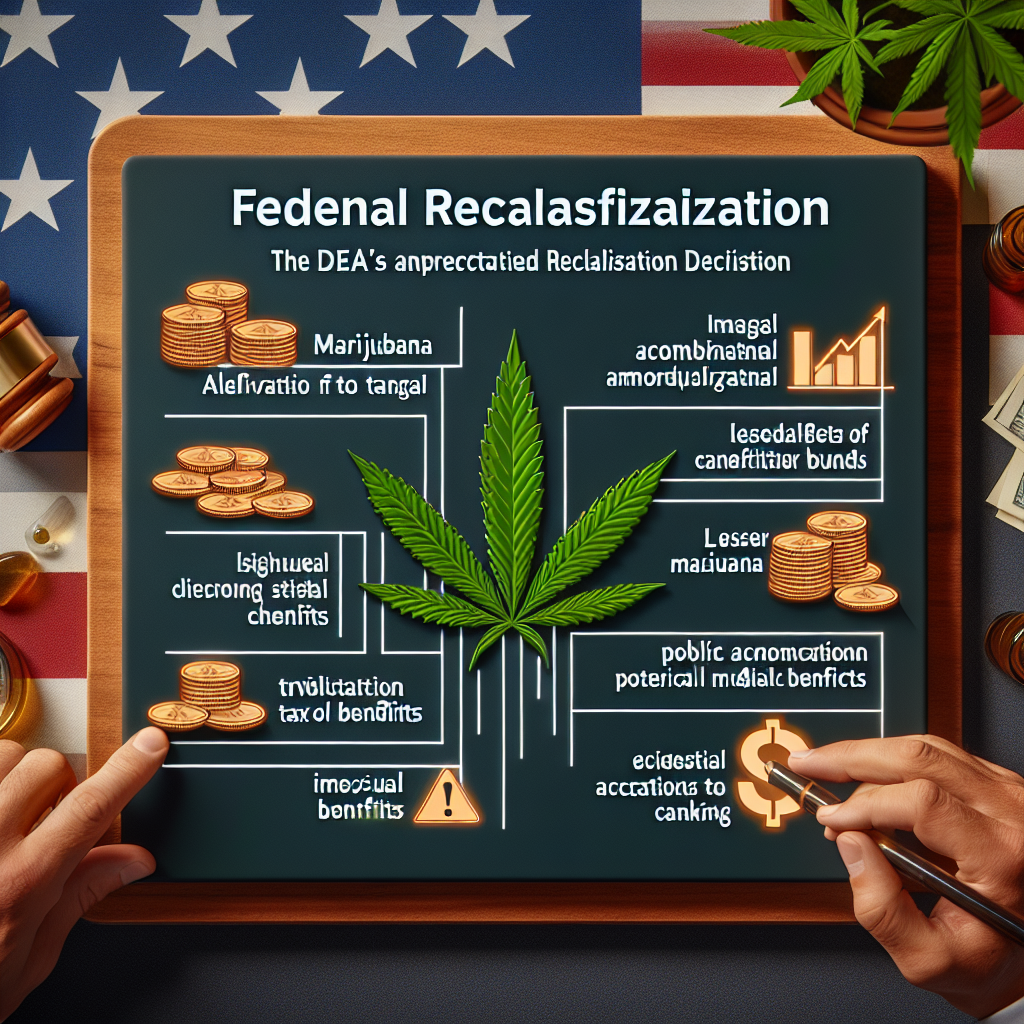
Cannabis Reclassification: A Turning Point
New Chapter in Cannabis: Understanding the DEA Reclassification
The cannabis industry is on the cusp of a historic transformation. Following a decision by the Biden administration, the DEA is expected to reclassify marijuana from the strictest Schedule I to the less stringent Schedule III, marking the first federal acknowledgement of its potential medical benefits. This blog post examines the implications of this monumental shift for the cannabis industry, drawing from a range of reputable sources.
The Reclassification Rationale
Since its classification as a Schedule I substance under the Controlled Substances Act of 1971, marijuana has been regarded as a drug with no accepted medical use and a high potential for abuse. However, recent developments, including a review by federal scientists, have challenged this perception, suggesting credible evidence of marijuana’s medical benefits and lower health risks compared to other controlled substances.
Impact on the Cannabis Industry
This reclassification stands to revolutionize the $34 billion cannabis industry. For companies operating in states where cannabis is legal, the move would eliminate significant tax burdens, notably the IRS’ code Section 280E, which currently prevents legal cannabis businesses from deducting ordinary business expenses. By transitioning to Schedule III, the industry no longer faces punitive tax measures and can expect increased investor confidence and potentially lower barriers to banking and other financial services.
Legal and Regulatory Considerations
Despite this progress, reclassification to Schedule III does not equate to legalization. The DEA’s proposed rule change will undergo a public review period and could face challenges. Moreover, cannabis remains federally illegal and subject to a patchwork of state laws and regulatory schemes. Lawmakers are considering various acts, such as the SAFER Banking Act and the HOPE Act, to provide further support and facilitate automatic expungement for certain cannabis offenses.
Public Health and Societal Impact
Opponents of reclassification warn of potential public health risks, particularly for youths, as high-potency marijuana is linked to an increased risk of psychiatric disorders. However, advocates argue that the reclassification will shrink the black market and contribute to correcting the social injustices propagated by the ‘war on drugs.’ The industry eagerly awaits the completion of the DEA’s public review period and the subsequent step in the long journey toward federal marijuana reform.
Source Articles:
- Forbes: https://www.forbes.com/sites/willyakowicz/2024/04/30/what-rescheduling-marijuana-means-for-the-cannabis-industry-dea-schedule-iii/
- NBC News: https://www.nbcnews.com/politics/joe-biden/biden-administration-plans-reclassify-marijuana-easing-restrictions-na-rcna149424
- CNN: https://www.cnn.com/2024/04/30/economy/dea-marijuana-rescheduling/index.html

